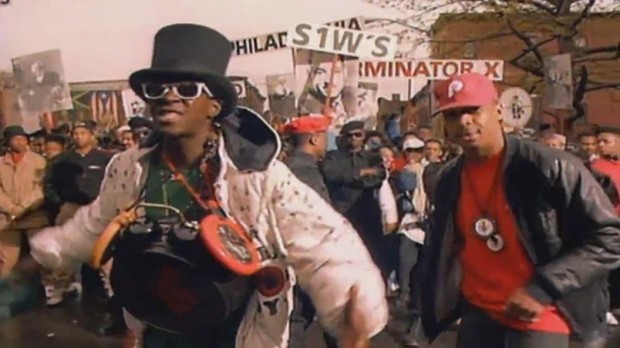80s Music – Songs Of Disenchantment
My daughter is doing a school project dealing with music’s social impact. The students are being asked to pick a decade and research songs from that period, while looking at the social issues people faced at that time. She chose to look at the 80s and her preliminary inquiry brought up the cold war, nuclear […]

My daughter is doing a school project dealing with music’s social impact. The students are being asked to pick a decade and research songs from that period, while looking at the social issues people faced at that time.
She chose to look at the 80s and her preliminary inquiry brought up the cold war, nuclear disarmament, apartheid and economic recession as major themes. Certainly not a bad start for a middle school project!
Of course, I was fascinated by her choice, since the 80s were the decade of my youth, or at least my high school years. I recalled with some fondness a few of the songs she had already unearthed on YouTube, like Nena’s 99 Luftballons and The Scorpions’ Wind of Change (OK, that’s technically a 1990 song, I know).
And, it was a lot of fun to share some other big hits she had not yet discovered, like Sunday Bloody Sunday by U2, The Police’s Invisible Sun, Sting’s Russians and Free Nelson Mandela by The Special A.K.A.
Although many people seem to imagine (or recall) the 80s as a decade of candy pop and silly hair metal (there was plenty of both), it was also a decade of remarkably thoughtful and even confrontational pop music. The same decade that gave us Wake Me Up Before You Go Go by Wham was also responsible for Blackened by Metallica and Fight The Power by Public Enemy.
The music video for the latter, shot by director Spike Lee, fascinated my daughter. She was intrigued by the idea of a music video set during a protest and the whole aesthetic of the clip felt far removed from what she was accustomed to in a music video.
Her reaction to Frankie Goes To Hollywood’s Two Tribes, was even more marked. Granted, this is a pretty in your face piece of work, but still, the idea of political leaders being mocked in a music video was shocking to her. “Isn’t this disrespectful” she asked, to which I could only reply, “yes, that’s the point.” Although we had talked about high art challenging authority before, the idea that a popular chart topping song could do so in such a graphic way was clearly a surprise.
We also looked at some songs that were not obviously social, but whose lyrics reflected the difficulties of the period, what we might call working class ballads, like Bon Jovi’s Livin’ On A Prayer or Billy Joel’s Allentown. Although my daughter was not familiar with Bruce Springsteen’s classic anthem, Born In The USA, but she did recognise the defiant timbre of his voice from Springsteen’s recent Wrecking Ball album. After all, each work reflects a period of economic upheaval.
I’m not sure the 80s were a better decade for music than this one. There was plenty of bad music then and there’s lots of good music today. But, when writers get political these days, it does tend to be the politics of individual identity, of gender, or identity, more than something larger and more social. Although today’s music still tries to shock, it doesn’t seem to have the same appetite to challenge that it once did.
TheStyle Council Walls Come Tumbling Down by The Style Council
You don’t have to take this crap
You don’t have to sit back and relax
You can actually try changing it
I know we’ve always been taught to rely
Upon those in authority
But you never know until you try
How things just might be
If we came together so strongly
Are you gonna try to make this work
Or spend your days down in the dirt
You see things can change
YES an’ walls can come tumbling down!
Governments crack and systems fall
’cause Unity is powerful
Lights go out
Walls come tumbling down!
Update: If you’d like to deep dive into music and the Cold War then take a listen to Patrick Radden Keefe’s excellent podcast Wind of Change which explores the conspiracy theory about the CIA’s involvement in writing the hit song Winds of Change.




